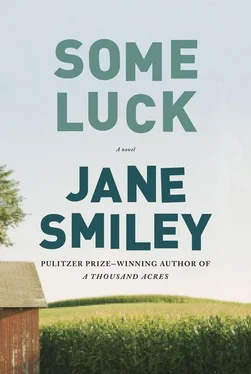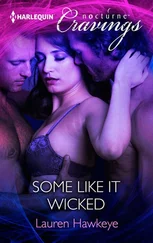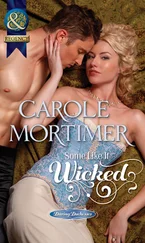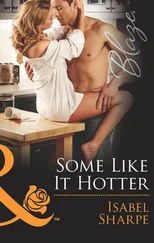“I am.” He let her hug him tight.
He couldn’t take his eyes off Rosa. She stood very upright, and held out her hand. He said, “I remember you.”
“Oh dear. That’s such a bad beginning. I was impossible when I was fifteen.”
“I guess I was so impossible myself that I didn’t notice.”
“You only ate pie,” said Eloise.
“I’m sure I had my nose in a book.”
“That, too,” said Rosa. “But I pretended not to care.”
Henry put his arm around her shoulders and said, “It’s nice to see you now.”
Eloise said, “Where shall we eat? Are you finished with your exams?”
Still, he could not take his eyes off Rosa.
They ate at a café on Iowa Avenue at the corner of Dubuque, and Henry ordered what Rosa ordered, which was dollar cakes with sausage and apple compote, orange juice, and a cup of coffee. Eloise had only the coffee and an English muffin. It was good that Henry was so practiced at keeping his thoughts to himself while carrying on a conversation as if he cared about it, because Eloise seemed satisfied that they were having a nice meal, while all the time Henry was taking inner snapshots of Rosa, smiling, frowning, rolling her eyes, laughing, eating, glancing out the window. Everything about her was plain and unglamorous — she wore no makeup, her shirt was like his, and she had a thrift-shop men’s vest from the twenties over it. Her gestures were graceful. If there was such a thing as love at first sight, Henry thought, this was it. He only remembered when they got in the car that the girl was his first cousin, that he had known her off and on his whole life, that after a week in Denby Eloise and Rosa were going back to San Francisco, exactly the wrong direction.
When they got to his room, just to see it for a moment and so that he could pick up his suitcase, his roommate Mel was there, sitting on his bed in his pajamas, drinking milk from a bottle, and rubbing his chin. He glanced up, said hi, groaned, set the bottle on the floor, and fell back in his bed. Eloise stood in the doorway; Rosa came in and surveyed his bookshelf, her hands in the pockets of her peacoat. Mel didn’t even seem to see her.
The car was from Hertz — Eloise had rented it in Chicago, a roomy Ford. Henry put his suitcase in the trunk, with theirs, and got right into the back seat — he wanted to watch Rosa for the couple of hours that it would take to get to Denby, but to do so naturally. Eloise asked him if he wanted to drive. He did not. He said, “So tell me all the bad stuff that Mama doesn’t want to know before we get home.”
Eloise laughed, but then got serious. She said, “Well, it’s a nightmare, Henry. You must know that. I had to testify before the California Un-American Activities Committee for four days in November.”
“What did you say?” said Henry.
Rosa said, “Take the Fifth, take the Fifth, take the Fifth. I think she should have said ‘fuck you.’ ”
Eloise said, “Thank you for that, darling. But it’s pretty clear. You have to just take the Fifth, because if you give them any excuse at all, even saying that you will tell about yourself but not about anyone else, that’s an admission that you have things to tell, and you can’t admit that or they will make you say them.”
“Are you going to have to go to Washington? You could stay with Arthur and Lillian.”
“I wouldn’t do that to them,” said Eloise. “If I go there, I will just keep to myself.”
Henry sat forward. “What are you saying, Aunt Eloise?”
Rosa said, “She’s saying that she can damage Arthur, but he can’t help her. We had to make sure that they weren’t going to be here before we came here. We did.” That she looked elegantly furious as she said this, Henry found entrancing. “People we know in Oakland said that I should change my name, because it’s so obvious who I was named for.”
“Who were you named for?”
“Rosa Luxemburg and Sylvia Pankhurst.”
“Who were they?”
Rosa said, “Oh, for God’s sake.”
Eloise said, “Rosa Luxemburg wrote ‘Leninism or Marxism?’ and Sylvia Pankhurst was a suffragette.”
Henry looked out the window. They were past Marengo now, going through the snowy black-and-white woods that would soon give way to the open prairies along Highway 30. He found himself touching the scar where Mama had sewn his lip with a length of silk thread, him screaming in Lillian’s lap. He imagined it turning red (it was actually whiter than the rest of his skin, and smaller in the mirror than it sometimes felt), and put his hand in his lap.
Rosa said, “I’m certainly not going to change my name.”
Henry watched the way she reached back and rolled her hair around her hand, then tossed her head.
“We’re not movie stars. We aren’t important enough to be blacklisted,” said Eloise. “I’m not a teacher. I’m not working for the government anymore. And Rosa’s father was a war hero. I think we’re safe enough, personally, but that’s why it’s best to keep ourselves to ourselves for the time being. Rosa consorts with outcasts, anyway, so no problem there.”
“Who do you consort with?” said Henry.
She said, “Poets. I babysit for Kenneth Rexroth. He has a little girl.”
Henry did not say that he hadn’t heard of this person. He said, “I wish I did that.”
“You do?” said Eloise. “That’s funny. There was an Iowa professor who sponsored a leftist peace conference I went to a couple of years ago, McGalman, something like that.”
“McGalliard?” said Henry.
“Yes, I think so.”
“I see him almost every day. We’re reading Beowulf . I’m going to do my senior thesis with him.”
“Are you surprised?”
“I don’t know.”
“Well, everyone sponsored that conference. Judy Holliday sponsored that conference. Albert Einstein sponsored that conference. Smart people were fighting to get on the list.”
“May I come visit you after I graduate?” said Henry. “I bet I can get into Berkeley.” His hand moved toward the scar again — a habit he thought he’d broken. That was how he knew that Rosa was affecting him.
“I bet you can,” said Eloise.
“Oh,” said Rosa, “you should.”
That was enough for now.

WALTER SLIPPED OUT of the house before Rosanna was awake and headed east, toward the rising sun. The air was clear and bracing, and he just wanted to look over the fields before planting commenced and the fields turned into a task that maybe he was no longer up to. There were so many acres they had to plant now that he was resolute about doing his share. The big house and the barn showed no signs of life, so even Joe wasn’t up yet. They had injected the anhydrous, at least — that was the nerve-racking part, and the fact that they themselves hadn’t yet had an accident wasn’t much solace. Rosanna’s brother John had accidentally disconnected the hose and released a white cloud of the stuff, and it was a good thing he was fast and the breeze took it away from the house. No real damage done, just a scare, and a warning.
Walter had to admit that the Easter trip to see the babies had taken more out of him than he’d expected, and it was not the train ride that did it (Frank paid for a roomette, and that was pretty comfortable). They’d gone first to Washington and seen Tina (Christina), who was quite a large child — nine pounds if you could believe it — and reminded Walter that any ancestor could crop up in a family, and if you kept crossing Angus and Herefords, sometimes you got a pure Hereford and sometimes you got a pure Angus, and sometimes you got a combination of the two. In this case, Lillian and Arthur had gotten a Cheek, and no doubt about it — thick, straight dark hair, pale-blue eyes, white skin, and intense gaze. But at least she was healthy. The same could not be said for Frank and Andy’s twins, the larger of whom was Richard, five pounds five ounces at birth, and then the surprise — the doctor had said, “And what do we have here?”—that was Michael, five pounds even (“And fortunate to be that,” said the doctor; “you must have eaten a lot of ice cream, my girl, and be glad you did”). The twins were in incubators still, after a month, and not expected to come home for another week. Walter didn’t know what to think of that. He had only seen them once, during a brief visit to the hospital. Rosanna kept saying she was sure they would be fine.
Читать дальше













